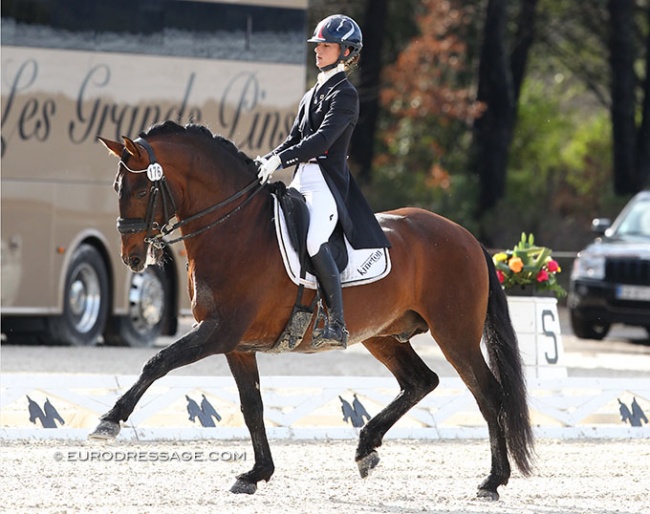
Alizee Froment is a former international Grand Prix rider and former French pony team trainer. She rode her last CDI in 2015 and since then has been focusing on freedom dressage, which she regularly show cases in horse fairs across Europe. Froment is based in Belgium, where she trains horses up to Grand Prix level.
This column was first published on Dressprod.com
"Why is Use of Voice Forbidden in the Show Ring?"
A chatterbox by birth passed on from mother to daughter across several generations, I have to admit that I have the tendency to talk a lot to my horses. When I discovered the world of freedom dressage, the habit "worsened" as I strongly supported the rhythm with sound effects to help my horse, on the ground, for them to understand what I expected from them, which speed and which energy. Bit by bit I started applying these voice commands in the saddle in the same way I use my legs, my back, my seat and my hands.
This is when I discovered how extraordinarly receptive horses are to voice commands. Once they understand the movement, confirmed and technically correct, a wisely used voice allows you to fine-tune the details, add a bit more activity, a bit more bounce and most of all remove the other aids for the benefit of a better equitation that is more fluid, one I think, more easy for the horse as well as for the rider. As the horse becomes more independent, it gains more freedom of action and focus, which only reinforces the bond with his rider, who can lighten the aids like that. The results are a clear advantage for both sides, which allow a better, general understanding of the combination.
This path has led me to ask the question: why is the voice - a natural aid like the rest of our body and not an artificial one - prohibited in the competition ring? Of course It's not about starting a song and pushing out endless decibels into the air, but about vocal codes that accompany the rest of our aids so well and clarify them. I do not understand why we are deprived from them.
If artificial aids, such as spurs and whips, can mask certain unresolved problems between rider and horse, this will not be the case with the voice, which only reinforces the message and strengthens the understanding between rider and horse.
This is a reflection that I wanted to share since it is not controversial and perhaps deserves to be heard. After all, we are all looking for to improve our sport every day
- by Alizee Froment
Related Links
What is the Best Way to Organize Training Elements?
Horse-friendly Dressage Training with Klimke and Thomsen: Desensitise and Motivate
Classical Training: A Rider's Ultimate Test, Retraining a Horse